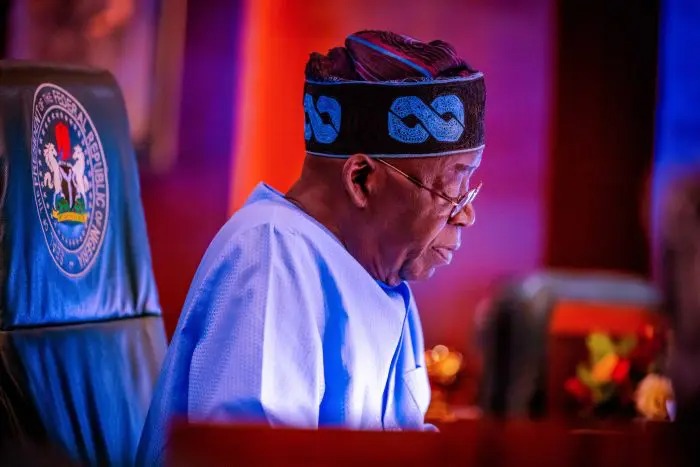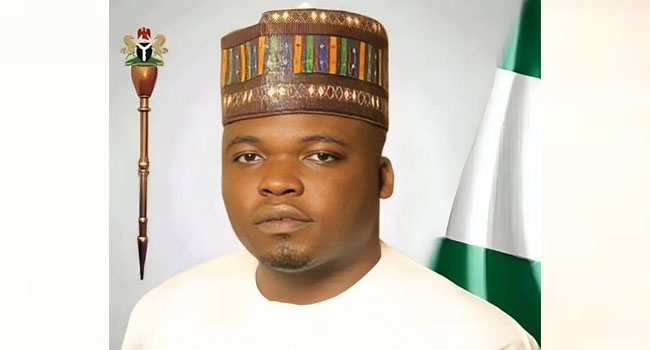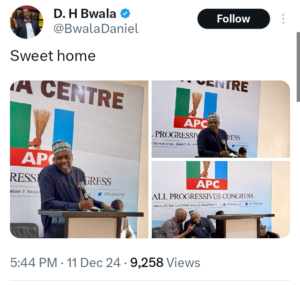Nigeria appears to be gradually constituting a new socio-national religion on the altar of a single political doctrine which, taken as an end in itself, will amount to no more than ideological heterodoxy.
To state the fact, agitations for restructuring, the quest to drive Nigeria, by constitutional means, into fully realising her designation as a ‘‘federal republic’’, have become a national singsong, raised to a fever pitch, so that except in the momentary distractions from those who still find the time to yell about the economy or for President Buhari’s whereabouts, no other issue appears to be engaging Nigerians more seriously nowadays.
North and South, memoranda and memorabilia have been flying, and political congregants of regional coalitions and assemblies have seen their ranks miraculously swell with latter-day proselytes to fiscal federalism, making diverse demands.
But there’s nothing really new about these. At least, not under the Nigerian sun.
In a land almost suffocating from the aridity of independent media to air opinion and set objective agenda, it is easy to see how the whole discourse has emanated from and rotated around big politicians and what are mostly their intellectual proxies, without any concrete effort to scale down things in a way that co-opts and accommodates space for common folks, around whose welfare the wheel of the restructuring debate legitimately spins.
Hence, it well might be asked: How does restructuring (or, in perhaps safer language, how does a proper re-federalisation of a unitarised Nigeria) affect common people: the pieceworkers, farmers, fishermen, food vendors, wheelbarrow pushers, the Al Majirai, woodcutters and the like?
Without properly explaining these issues and articulating the economic leverage that should become fundamental and justiceable, and made inalienable for every single Nigerian, regardless of class or creed, all talk about “giving more power to the states” will remain tucked up on a road to an imaginary destination, guided by the antics and rhetoric of opportunistic politicians and their well-wishers.
Already, the governors themselves, rising to seize the day, have set up a committee among themselves, to demand total control of police in their states. Such a call in itself, without concretely outlining paradigms on state funding, as well as legal guarantees that ensure state police won’t become a bulldog against enemies perceived and real (in their domains), must be taken for a giant red flag. It’d be the wrong place from which to start the restructuring process.
Now, without a doubt, I’m for federalism. Fiscal federalism. And in seeking the way to a better, re-federalised Nigeria, the economy must take right of way. For a long time, average Nigerians have been shut in to labour and shut out from the accruing blessings. Only restructuring can end this.
Within a proposed renegotiation of our federating units into geo-economic hubs, the country will depend on remittance from the individual through the state upward to the federal government. This will put an end to General Abacha’s geopolitical, prebendalist allocations from Abuja to the 36 state governments, usually the inevitable terminus of all such free monies – crudely guaranteeing the ominous tyranny of the centre, while making a virtual monument of claims to entitlement by the federating states and sundry powerful interests.
Geopolitics is a defiant crybaby that knows exactly when to dart the most sinister shrill and wouldn’t as much as brook a wink before letting it ooze. Those who have attempted rather to nurse and mind her cot know better than to charm her fury with carrot or stick. Ever so hungry, ever so cunning, geopoliticians are the servants of political divination who have exalted blackmail to a standard instrument in the court of national power and resource distribution….for their private interests.
Among the core troubles with Nigeria (apologies Achebe), the crisis of rotation of power, the maltreatment of minorities, as well as decades-long politics of exclusionism at the instance of classist gerrymandering, have not once, in the several attempts to address them, translated into anything of concrete advantage for ordinary people, bar the gullible who have succumbed to the crumbs of psychological relief. Devolution of powers will take the pressure substantially off the centre.
Since the years following the civil war, the militarised unitarism that has been the ship of the Nigerian state has hardly led in the path of meaningful progress on any critical front: her institutions that should have been the authentic vehicles for driving progress and reform have been the actual incubators of intra and inter-ethnic brigandage and retaliationism.
Given Nigeria’s heterogeneous composition and manifest pluralism, it is difficult to understand how a distantiated, overburdened centre hopes to run a perfect balancing act, courting the understanding of ever so undercounted hundreds of ethnic groupings and expect everyone to play along within a uniform code. Quite clearly, that has failed.
Therefore, moving forward. We need to begin over by revising the collective narrative into a federation of geoeconomic, not geopolitical, but geoeconomic, federating equals, such as will help us beat the borders of ethnicity and religion as well as create a healthy sense of looking away from the centre.
The geographical sanctity of the 36-state structure along with the raison d’être for their creation, is hereby contested. And this is without prejudice to the relief the creation of states has apparently offered minorities who feared being subsumed in the larger regions of the first republic.
The singular driving criteria for the creation or, as may now be appropriate, the recreation of the federating parts should be economic viability. Some, quite a few, might have already arrived within that bracket in the present experience.
This proposition would look to be a sure means of uniting ordinary Nigerians. We need to build a common path to everyone’s stomach, that’s the secret why average folks always respond to overtures of stomach industry, or, is it infrastructure? It probably also explains why those who have constituted themselves into a thieving elite have little or no regard for ethnic origin or religious affiliation.
The current mishmash of divide-and-rule units we have for states gives loud expression to ethnic, tribal, and linguistic cleavages which hardly raise any hope for a Pan-Nigerian agenda either among or beyond ourselves.
Only after a readjustment of our internal boundaries as may be drawn along catchments of resource distribution and administered by governments in such locales can Nigerians see the necessity of heading into a successor epoch when we can furnish such geo-economic jurisdictions (states, zone, provinces, or whatever else we may call them) with the extra, dignifying vestments of advanced political responsibilities.
Without viable local geo-economies, “more power to the states” and everything that comes with it IN THIS PRESENT DISTRESS will only so far as translate into more pressure on the centre…that will compound it all.
Cyril Abaku is a Pan-Nigerianist based in Lagos.

 BIG STORY3 days ago
BIG STORY3 days ago
 BIG STORY4 days ago
BIG STORY4 days ago
 BIG STORY3 days ago
BIG STORY3 days ago
 BIG STORY5 days ago
BIG STORY5 days ago
 BIG STORY4 days ago
BIG STORY4 days ago
 BIG STORY17 hours ago
BIG STORY17 hours ago
 BIG STORY2 days ago
BIG STORY2 days ago
 BIG STORY3 days ago
BIG STORY3 days ago


















